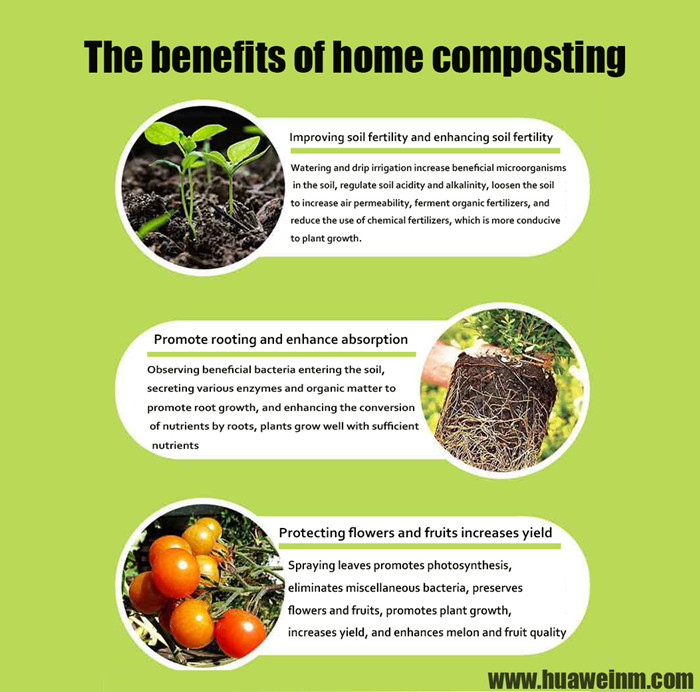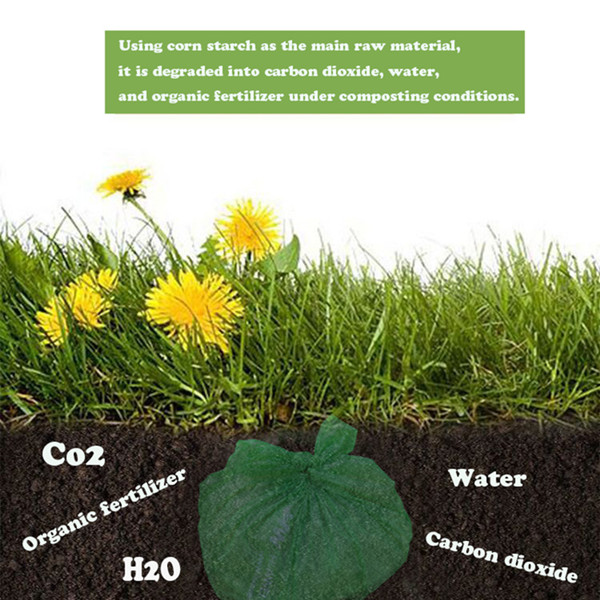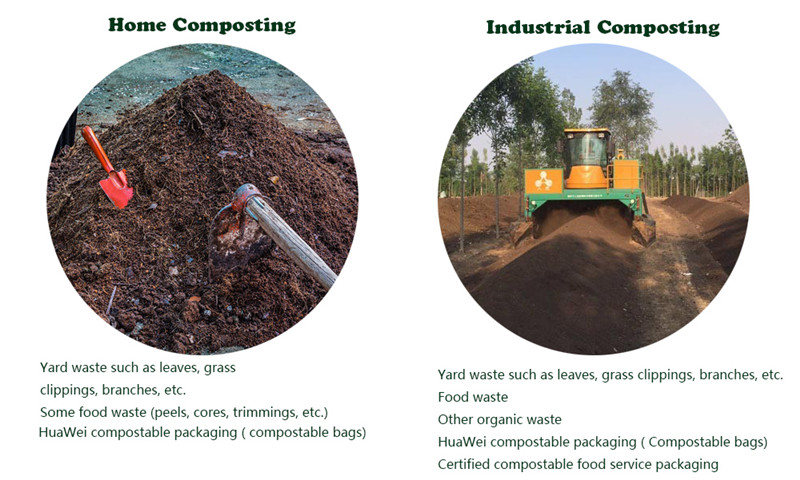Compost is an organic fertilizer that contains abundant nutrients and has a long and stable fertilizer effect. It is also beneficial for promoting the formation of soil particle structure, increasing the ability of soil to retain water, heat, air, and fertilizer. Moreover, when mixed with chemical fertilizers, it can compensate for the deficiency of single nutrient content in chemical fertilizers. Long term use of chemical fertilizers alone can cause soil compaction, reduced water and fertilizer retention performance. Composting is an organic fertilizer made by using various plant residues (crop straw, weeds, leaves, peat, garbage, and other waste materials) as the main raw materials, mixing human and animal manure and urine, and composting them. Due to its stacking materials, stacking principles, and similar composition and properties of fertilizer to manure, it is also known as artificial manure.

1. Reduce and alleviate soil borne diseases: Composting is widely recognized and appreciated for controlling soil diseases without using chemical drugs, effectively reducing the occurrence of diseases.
2. Alternative aquaculture bedding: Compost can replace traditional farming bedding such as straw, sawdust, rice husks, etc. Directly laid in the enclosure, it can absorb animal excrement, reduce environmental pollution, and provide a comfortable living environment for animals.
3. Killing pathogenic bacteria: Livestock and poultry manure may contain pathogenic bacteria such as flagellates and cryptosporidium. During the composting process, most pathogens can be effectively killed within 30 minutes at 60 ℃.
4. Soil improvement effect: Compost, as an excellent soil amendment, can improve the physical and chemical structure and biological environment of soil, reducing the risk of soil erosion.
5. Improve soil utilization efficiency: Composting can convert unstable waste into stable humus, with a reasonable carbon nitrogen ratio, and improve land use efficiency. In addition, the high temperature generated during the composting process can also reduce the number of weed seeds.
6. Reduce environmental pollution: Modern composting facilities can effectively control the generation of odors and flies, especially for agricultural farmers. Composting can effectively digest animal manure, reduce treatment costs, and alleviate the pressure on soil.
7. Promote organic planting and gardening: Compost contains comprehensive nutrients, and long-term use can make vegetables and fruits taste better and sweeter. In terms of organic horticulture, the use of compost can also reduce costs and replace higher priced peat soil.

Food scraps and food waste should be sent to an industrial compost facility rather than a landfill. This includes waste from fruits, vegetables, meats, dairy products, fish, shellfish, nuts, seeds, grains, coffee grounds and similar material that results from the storage, preparation, cooking, handling, selling or serving of food.
Yard wastes, such as fallen leaves, grass clippings, weeds and the remains of garden plants, make excellent compost. Woody yard wastes can be clipped and sawed down to a size useful for the wood stove or fireplace or they can be run through a shredder for mulching and path-making. Used as a mulch or for plants, they will eventually decompose and become compost.
The types of compostable products include traditional composting, rapid cracking composting, composting fermentation reactors, household composting bins, industrial composting, organic and inorganic co composting, etc.

These composting methods have their own characteristics and are suitable for organic waste treatment under different scales and environmental conditions. By selecting and combining these composting methods reasonably, we can better promote the resource utilization of organic waste and contribute to the construction of a sustainable society.
Traditional composting is an organic fertilizer that uses various organic wastes (such as crop straw, weeds, leaves, peat, organic household waste, etc.) as the main raw materials and is decomposed through composting. This fertilizer contains rich nutrients, has a long and stable fertilizer effect, and is conducive to promoting the formation of soil solid structure, increasing the ability of soil to retain water, heat, air, and fertilizer.
Quick cracking compost and household composting bins are suitable for small-scale household or personal use, providing a convenient and efficient way to dispose of household kitchen and garden waste, while also effectively converting it into fertilizer.
Industrial composting is suitable for large-scale industrial production environments and can process large amounts of organic waste, such as kitchen waste, sludge, etc., and convert them into organic fertilizers.
Co composting of organic and inorganic materials is an innovative method that combines organic waste with inorganic substances and forms a new type of fertilizer through specific processes. This fertilizer not only has good fertilizer efficiency, but also effectively improves soil structure.
Through these different composting methods, organic waste can be effectively treated, achieving resource recycling, reducing environmental pollution, and promoting sustainable development of the ecological environment.
